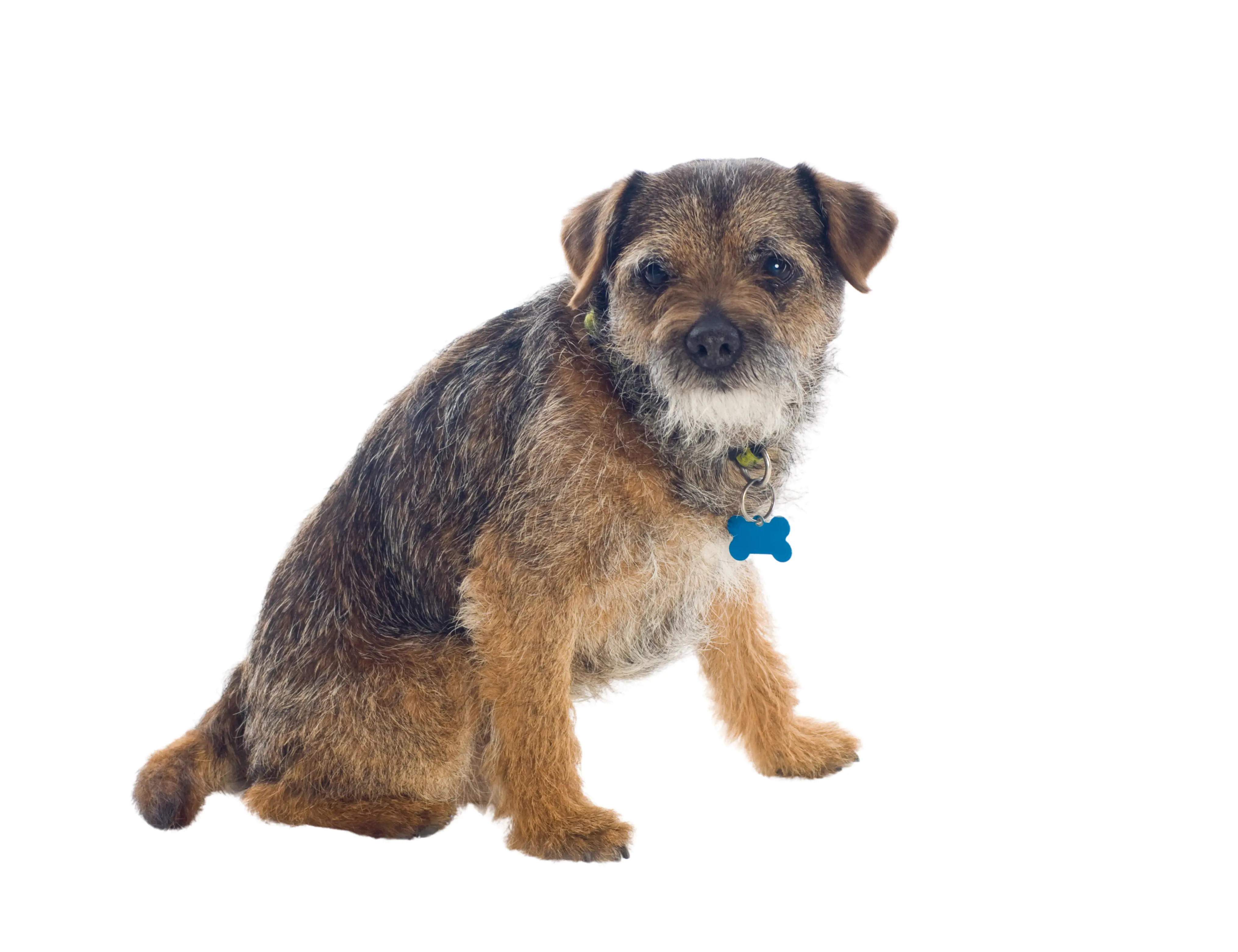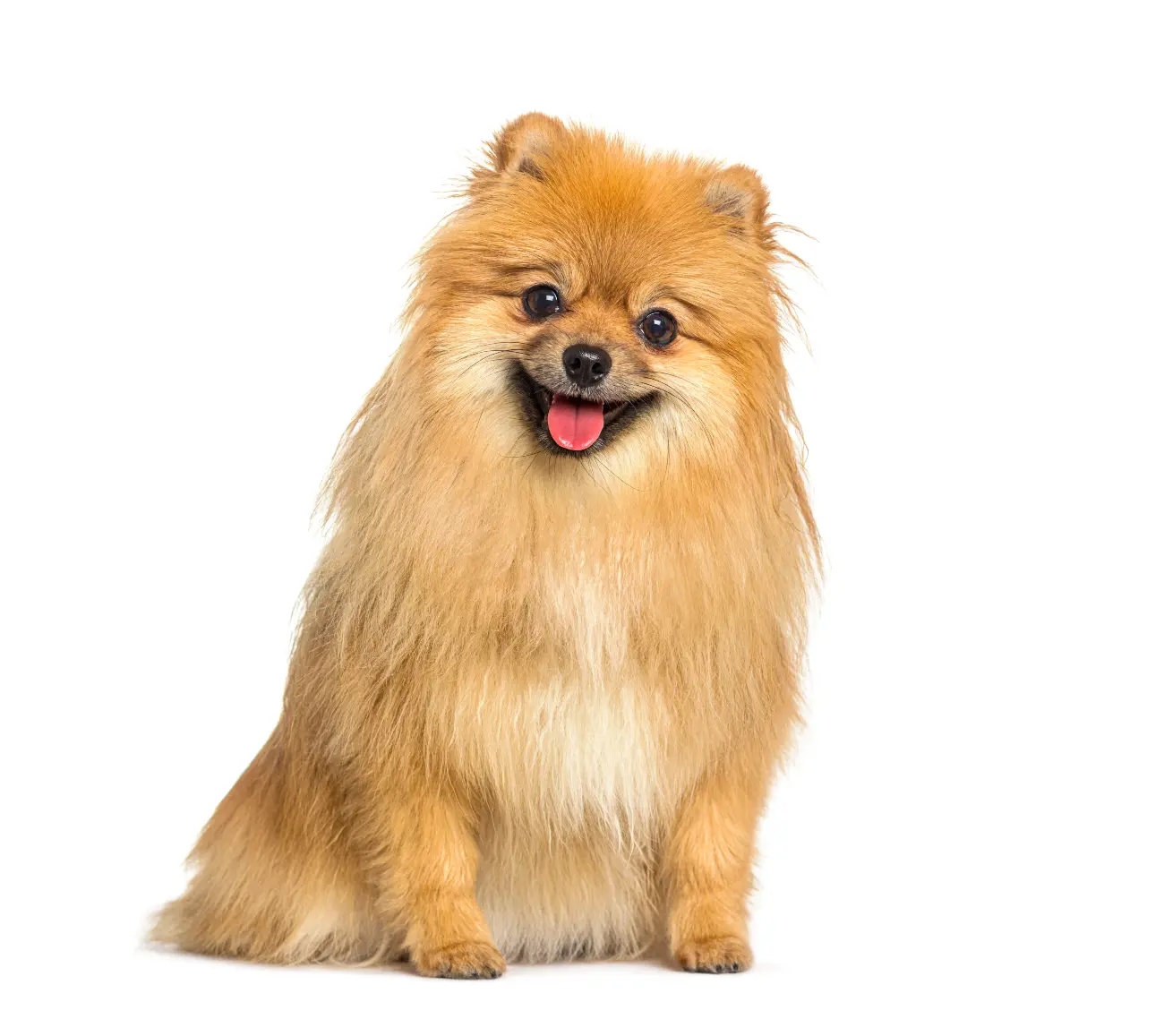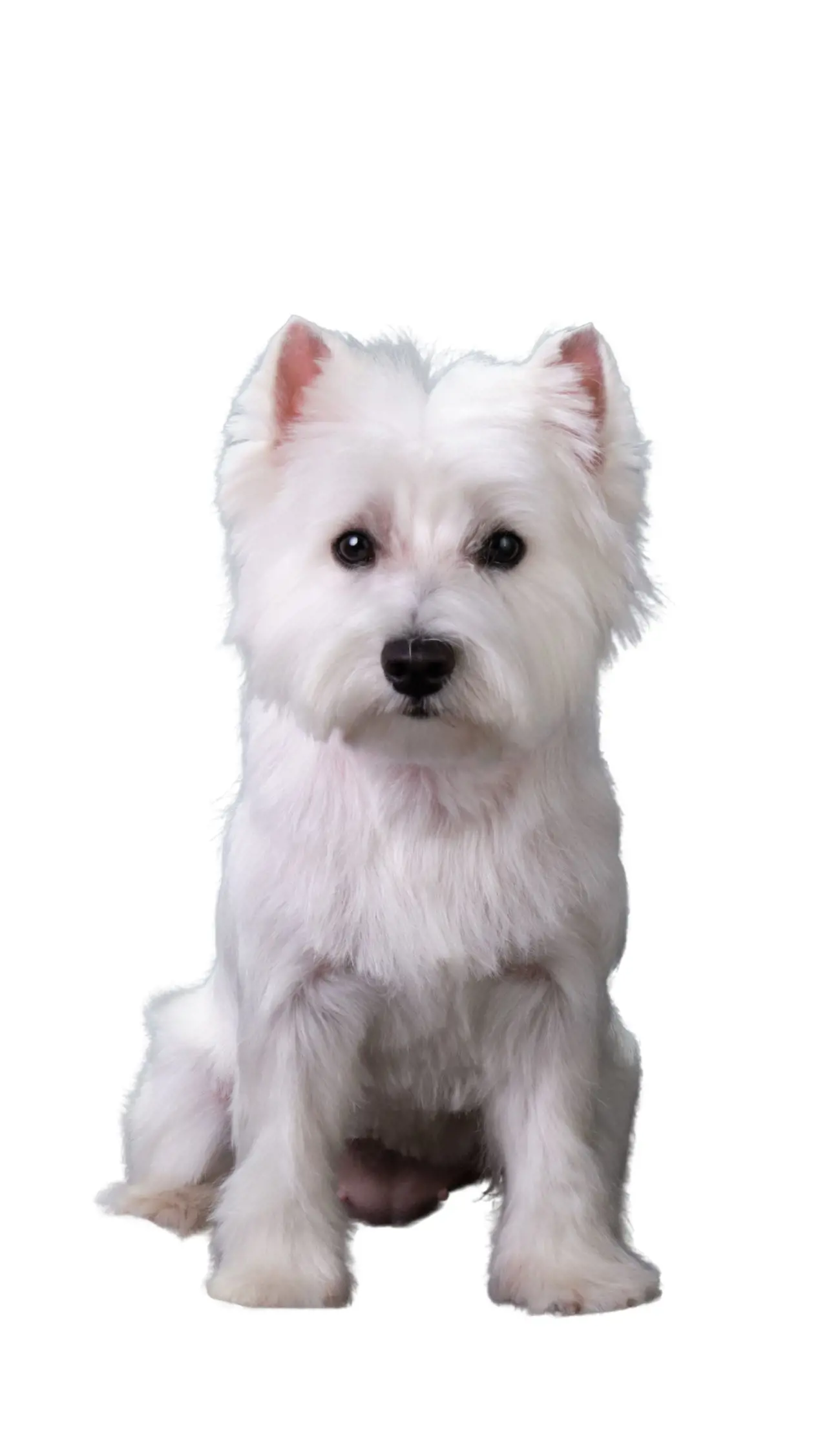Toy and Miniature Poodles are two distinct varieties of the Poodle breed, differentiated primarily by their size. Toy Poodles stand no more than 10 inches (25cm) tall at the shoulder and typically weigh between 4 to 6 pounds. In contrast, Miniature Poodles are slightly larger, standing between 10 to 15 inches (25-38cm) tall and weighing around 10 to 15 pounds

Top 6 vital stats about Poodles...
Social
Good with other kids and other pets
Exercise
40+ mins per day
Grooming
4-6 weeks
Feeding
2 times a day
Training
Requires frequent exercise and stimulation
Shedding
Light
Caring for your Poodle
Do Poodles need a lot of grooming?
The frequency of grooming can vary depending on the poodle's specific hairstyle and activity level, but typically, professional grooming every six to eight weeks is recommended.
Do Poodles suffer from health conditions?
These dogs can be susceptible to conditions such as hip dysplasia, progressive retinal atrophy, and Addison's disease. Poodles may experience patellar luxation and thyroid problems. Regular veterinary check-ups are essential to early detection and management of these conditions.
Do Poodles bark a lot?
Poodle barking tendencies often depend on factors such as training, socialisation, and individual temperament. Therefore, while Poodles can bark like any other dog, they are not typically known for being overly vocal.
General summary
Poodles, while generally healthy and known for their intelligence and versatility, are predisposed to certain common health issues such as hip dysplasia and muscular problems. Regular veterinary check-ups are essential to early detection and management of these conditions. When it comes to feeding your Poodle, it is essential to consult with a veterinarian to determine the most appropriate feeding schedule and portion sizes tailored to a Poodle's specific needs, ensuring optimal nutrition and well-being.
Poodle feeding & attention
How often to feed them?
Poodles typically eat two to three times per day, depending on their age, size, and activity level. Puppies often require three meals daily to support their rapid growth and high energy needs.
What energy levels do Poodles have?
Poodle dogs are renowned for their high energy levels and vibrant personalities, which make them an engaging and active breed. These dogs require regular physical exercise and mental stimulation to maintain their well-being.
Easy to train?
Poodles are intelligent and highly trainable dogs, which makes them receptive to learning new commands and behaviours quickly. However, their intelligence also means they require consistent and structured training to keep them mentally stimulated and well-behaved.
Care summary
Regular training sessions, starting from an early age, are essential to prevent the development of undesirable habits in your Poodle dog. Poodle dogs are known for their intelligence and versatility, traits that make them highly trainable. While all dogs have the potential to bark, Poodles do not generally bark excessively.
Poodle Personality
Good with children?
Poodles are generally considered to be excellent with children due to their intelligent, gentle, and affectionate nature. Poodles have a friendly disposition and adaptability making them well-suited for life with children, fostering a nurturing and safe environment.
Good with people?
Their innate sociability allow them to adapt well to various family dynamics and environments. Poodles tend to form strong bonds with their owners, displaying loyalty and affection.
Good with other pets?
Poodles tend to exhibit a friendly disposition towards both smaller and larger pets, including cats and other dog breeds. However, as with any breed, individual temperament can vary, and successful cohabitation often depends on careful introductions and consistent behavioural training.
Personality summary
Poodle dogs are generally well-regarded for their sociable and adaptable nature, making them a suitable choice for households with children and even other pets. Their intelligence and train-ability enable them to cohabit harmoniously with a family, provided they receive proper socialisation from an early age.
Did You Know?
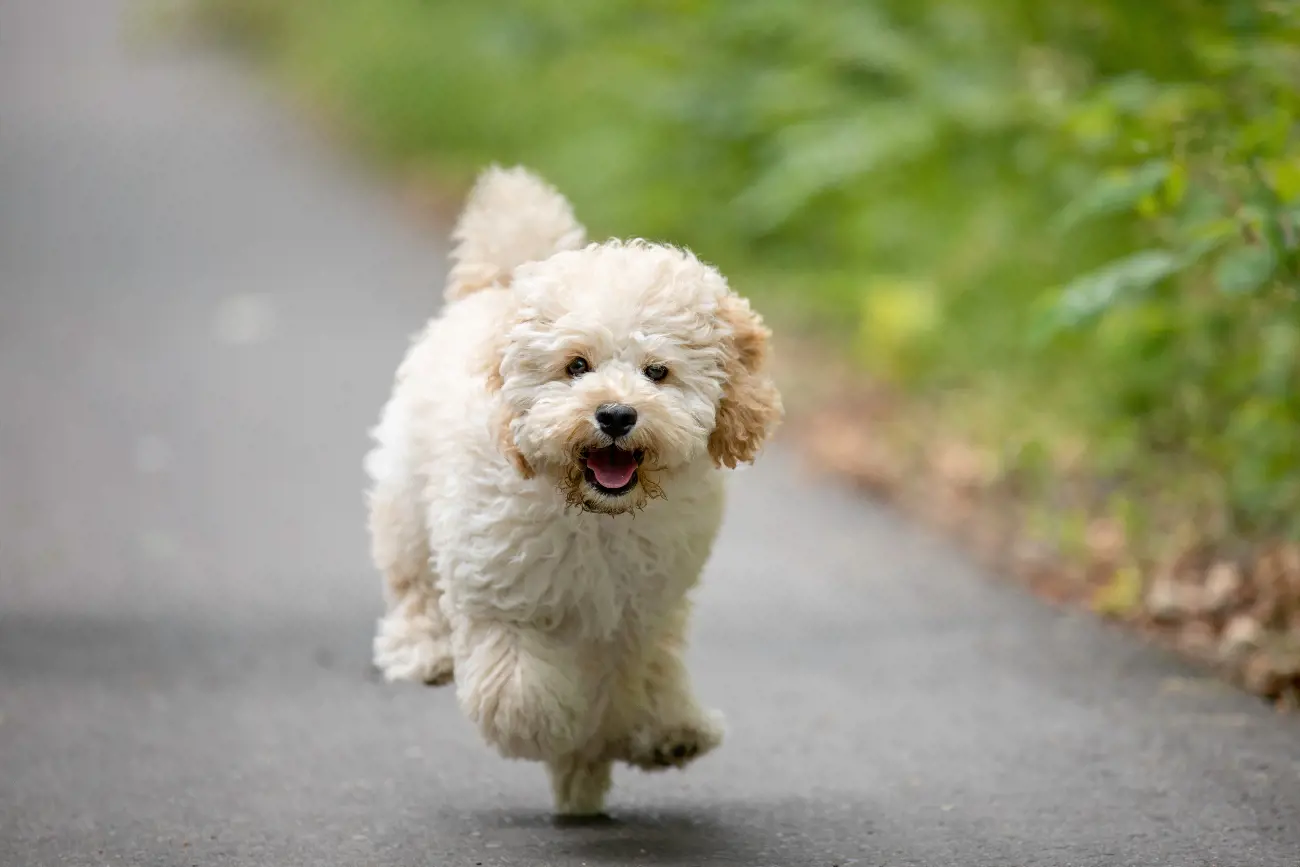
Their intelligence further complements their energy, allowing them to excel in various canine sports and obedience training.
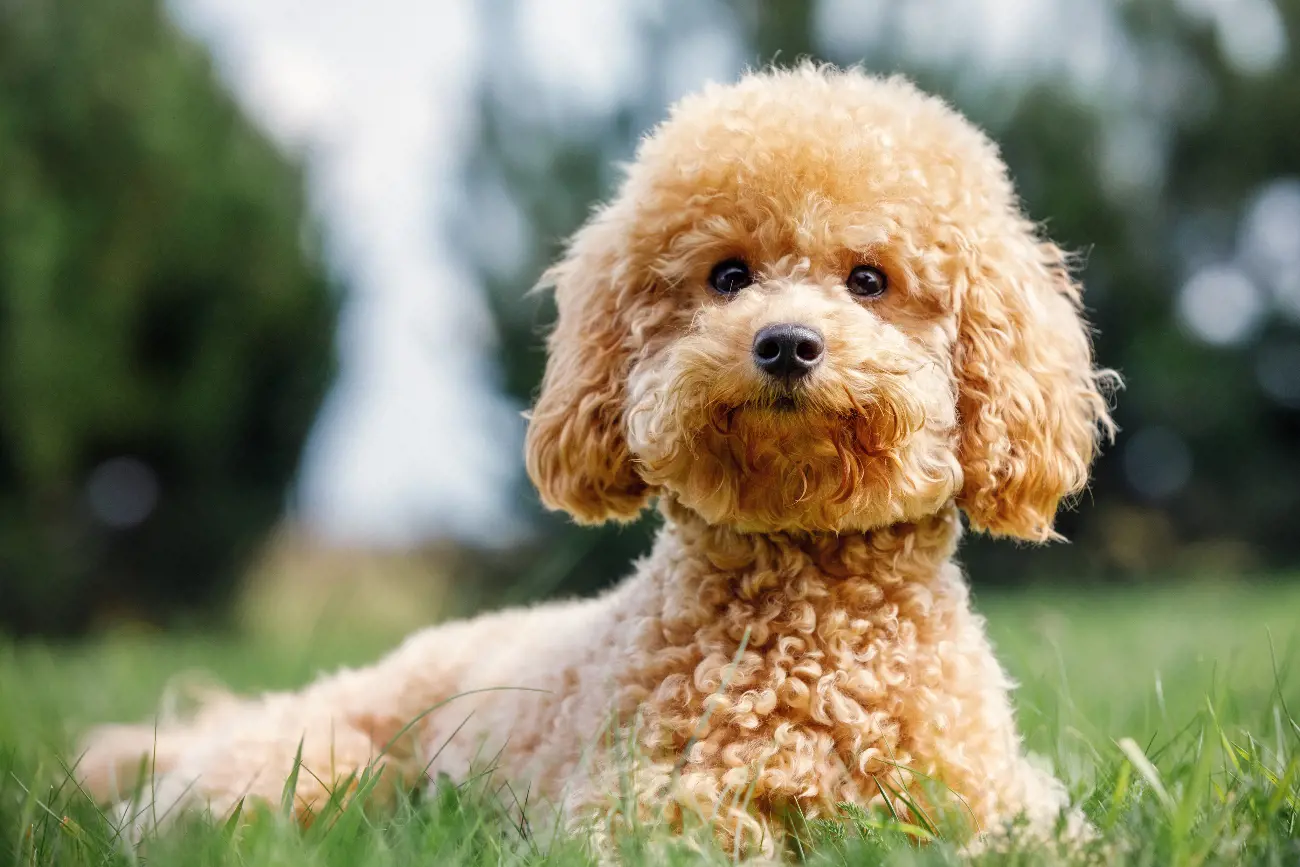
The Poodle was originally bred in Germany as water retrievers, Poodles are exceptionally adept swimmers, a trait that has been cherished for centuries.
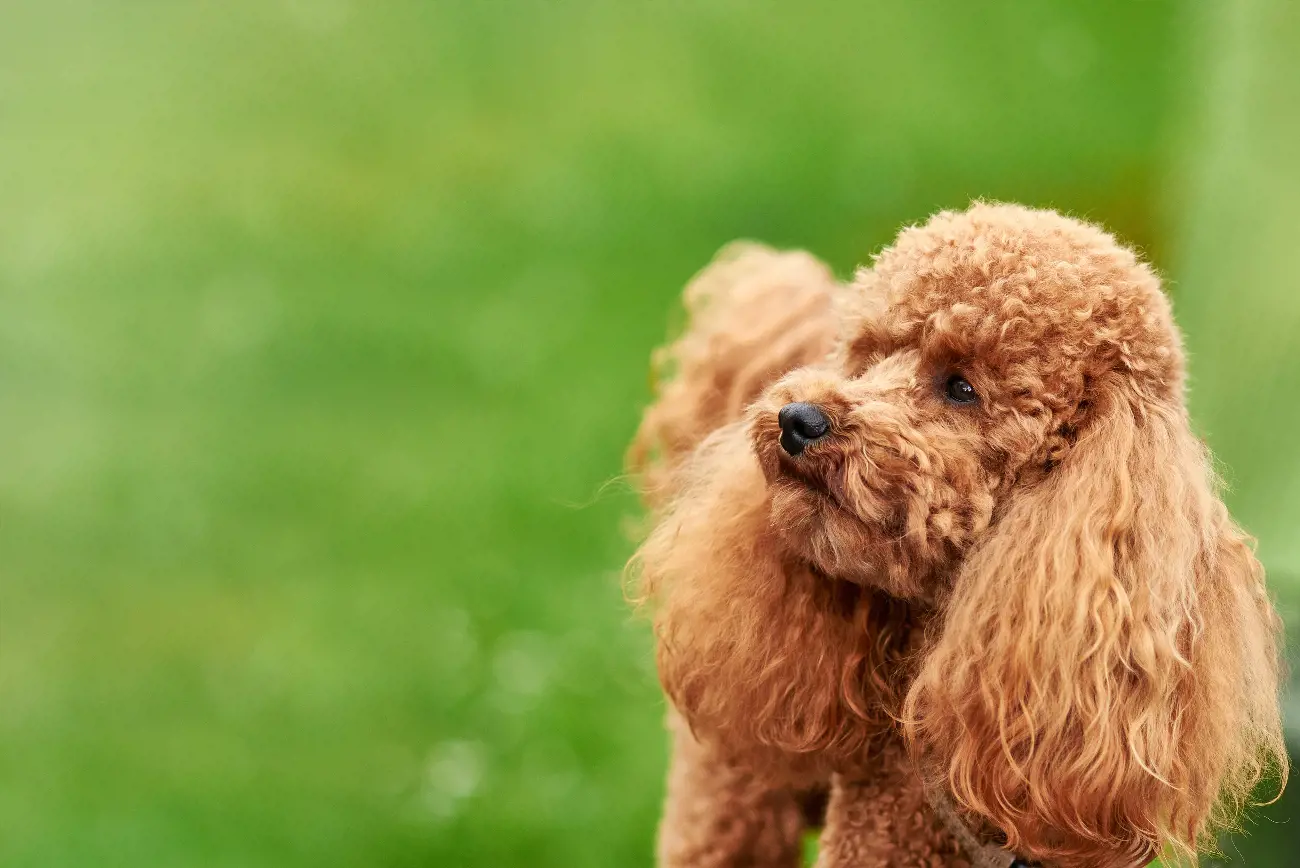
Their distinctive grooming style, often seen in dog shows, was initially designed to protect their joints and vital organs while swimming.
Package available for your Poodle includes
Bronze
Silver
Gold
Complementary treatment
Up to
£500
per illness/injury
Up to
£750
per illness/injury
Up to
£1000
per illness/injury
3rd Party Liability (dogs only)
Up to
£1M
per illness/injury
Up to
£2M
per illness/injury
Up to
£2M
per illness/injury
Death from Illness*
*Death from illness does not apply to dogs aged 9 and over & cats aged 11 and over
£1,000
£1,500
£2,000
Death from accident
£1,000
£1,500
£2,000
Poodle Training & Exercise
-
While Poodles do not necessarily need more training than other breeds, the quality and consistency of their training play a vital role in their overall development and behaviour.
-
Proper training and consistent reinforcement can minimise unnecessary barking. Poodles may alert their owners to unfamiliar sounds or strangers, but with appropriate guidance, they can learn to control their vocalisations.
-
Socialisation is important to ensure Poodles interact well with other animals and people. Engage your Poodle in different interactions from an early age.
-
Poodles do not necessarily need more training than other breeds, the quality and consistency of their training play a vital role in their overall development and behaviour.
Poodle Personality Traits
-
Poodles are renowned for their distinctive, curly coats, which necessitate consistent grooming to maintain their appearance and health.
-
Regular grooming sessions, including brushing, trimming, and bathing, are essential to prevent matting and tangling of their fur.
-
Poodles can be an excellent choice for first-time dog owners due to their intelligence and friendly nature. Poodles are adaptable and thrive in various living environments, whether in a city flat or a countryside home.
-
Overall, with proper care and attention, Poodles can make loyal and affectionate companions for novice dog owners.
-
Adult Poodles generally benefit from two well-balanced meals each day, which help maintain their health and vitality.
-
Senior Poodles might require dietary adjustments, including meal frequency, based on their individual health requirements. It's always advised to consult with a professional vet for feeding schedules.
-
Responsible breeding practices and genetic testing can minimise the risk of hereditary diseases.
-
Prospective owners should be well-informed about these potential health concerns to ensure they provide optimal care for their Poodle companions.
Frequently Asked Questions
The primary difference between a Poodle and a Toy Poodle lies in their size. Poodles come in three distinct sizes: standard, miniature, and toy, with the Toy Poodle being the smallest.
Training Poodles requires a blend of consistency, patience, and positive reinforcement due to their high intelligence and eagerness to please. Establishing a routine helps in setting clear expectations, while using rewards such as treats and praise can reinforce desired behaviours effectively. Maintaining a calm and assertive demeanour during training sessions fosters a respectful and trusting relationship between the owner and the Poodle.
When considering exercises for your Poodle, it is essential to select activities that cater to their intelligence and agility. Regular walks are fundamental, ensuring they receive ample physical stimulation. Additionally, incorporating fetch or Frisbee games can enhance their agility and stamina.
Begin by introducing your Poodle to a variety of environments, people, and other animals from a young age. Gradually expose it to different sounds, sights, and experiences to help it become accustomed to diverse situations. Regular visits to parks and pet-friendly spaces can further enhance its social skills.
To keep your Poodle dog happy, it is essential to provide a balanced combination of physical exercise, mental stimulation, and social interaction. Regular walks, playtime, and engaging activities such as puzzle toys or obedience training can significantly contribute to their well-being. Additionally, offering affection and companionship fosters a strong bond, ensuring your Poodle feels loved and secure in their environment.
Poodles have demands for exercise and grooming requirements, however, Poodles are known for their loyalty, adaptability, and hypoallergenic coats, making them a popular choice for many families. Proper care and attention can ensure that Poodles thrive and remain healthy, happy companions.
Poodle traits can make them susceptible to high separation anxiety. Due to their strong attachment to their owners, Poodles may experience considerable distress when left alone for extended periods. Symptoms of separation anxiety in Poodles can include excessive barking, destructive behaviour, and even depression.
A Poodle puppy is known for being lively and fun, making it one of the best breeds to train. With proper care and training, a Poodle puppy can grow into a loyal and well-mannered companion.






